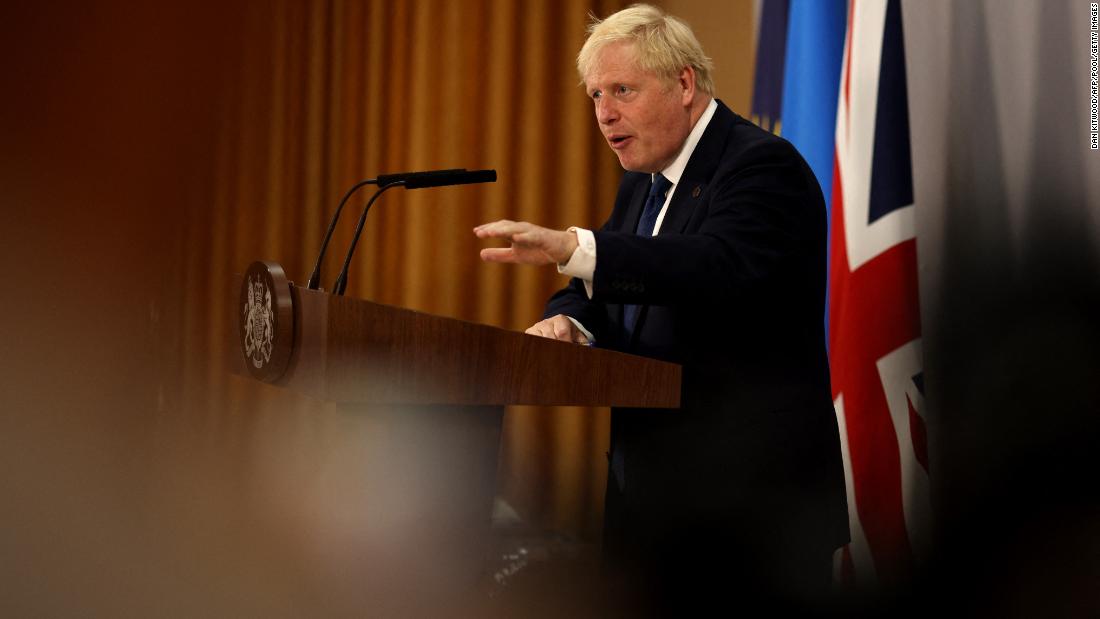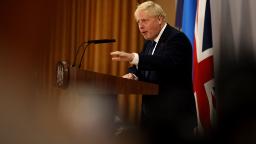And this time, it’s a lot worse than all the other times.
Health Secretary Sajid Javid said he could not “in good conscience” continue. Finance minister Rishi Sunak also resigned, saying that people “rightly expect government to be conducted properly, competently and seriously.”
in an effort to draw a line under the swirling controversy, Johnson issued a statement in which he apologised and said he was wrong to have reappointed Pincher to the whip’s office — which, ironically, is responsible for party discipline — earlier this year. But that was overtaken within minutes by the resignation of the two Cabinet members.
The details of how Downing Street got itself into such a mess bear laying out. At first, when new reports of Pincher’s historical conduct emerged in the light of his resignation, Downing Street initially denied the Prime Minister knew anything about the allegations.
When it became clear this would not hold, Johnson’s team said he had known about the historical allegations, but that they had been “resolved.” When it emerged that one of the previously unreported allegations against Pincher had been upheld, Johnson’s spokesperson explained that “resolved” could mean that it had been upheld.
Regardless of any justification Downing Street has attempted to provide, Johnson’s judgment — and his handling of this latest crisis — is now in serious doubt.
“The biggest threat to this government is its own staggering incompetence,” said one senior government official. “Discipline has completely broken down.”
“The team around the Prime Minister seems to have no idea how badly it’s going,” they added. “No one is good at giving interviews. We cannot stick to a single line. We’ve completely lost control.”
A government minister told CNN they believe that one key problem is that Johnson sets the tone for behaviour.
“It’s hard for someone with a personal life as colourful as his to reprimand people for behaving inappropriately,” they said.
The growing sense of chaos — and the view that the government has lost control of yet another story — is doing nothing for Conservatives who think Johnson has become the party’s biggest electoral turn-off.
But Conservative MPs are starting to lose hope that even if Johnson is removed from power, it won’t be possible to undo the damage he has done to the party before the next scheduled election in 2024.
Even more worryingly for those who have lost faith in the PM, he seems determined to fight on.
This alarms Conservative MPs, especially those in marginal seats who have all but given up hope of retaining them. Few of them think that Johnson has any real grip on how bad things have got — and they can’t see a way to make the Prime Minister see sense.
The government’s poor handling of Pincher’s resignation means the scandal is now tied to Johnson personally. He was the one who chose to appoint Pincher to a top job in government — despite knowing how serious the allegations against him were, and even though he was aware that a complaint against him had been upheld.
For years, Johnson’s main selling point has been his ability to connect with voters, personally. His brand of optimistic populism was — so Conservative MPs thought — the force of nature that had made a majority of the British public vote for Brexit in 2016 and had given the Tories a parliamentary majority of 80 in 2019.
But as Johnson’s government veers from one crisis to the next, his MPs now fear they are learning the hard way just what happens when a populist loses their popularity.







More News
Army Begins Building Floating Aid Pier Off Gaza’s Coast, Pentagon Says
Israel’s Claim of Killing ‘Half’ of Hezbollah Commanders in Southern Lebanon Draws Skepticism
Opinion | Can Biden Revive the Fortunes of American Workers?